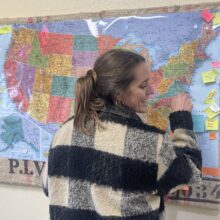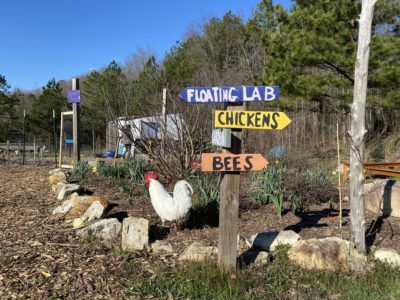On March 20, Promising Pages, a nonprofit organization that distributes books to underserved children, worked with Charlotte-Mecklenburg Schools (CMS) to distribute 7,000 books at seven schools acting as meal distribution sites. The organization has given out 14,000 books in total since the coronavirus, also known as COVID-19, shut down North Carolina public schools on March 16. For the latest on EducationNC’s coverage on the coronavirus, click here.
CMS is providing grab-and-go meals for both breakfast and lunch while schools are closed. Taking on a variation of their usual summer feeding program, Promising Pages worked with these meal sites, and will work with the remaining 56 sites, in hopes of providing up to 50,000 books and other needed items for students while schools are closed.
“This really isn’t just us, this is many of the organizations that we work with side-by-side, every day serving children,” says Kelly Cates, deputy director of Promising Pages.
Partner organizations such as Communities in Schools, Heart Math Tutoring, Classroom Central, and others are coordinating efforts to provide more school supplies along with Promising Page’s book donations. Cates says, “We are all working together to make sure kids get what they need so that they don’t fall behind.”
What is Promising Pages?
Promising Pages says there are more than 60,000 children in the Charlotte-Mecklenburg area that are in danger of falling behind because of their lack of access to books. In their warehouse, which is filled to the rafters with bins of books, you can also find this heat map of the Charlotte area.
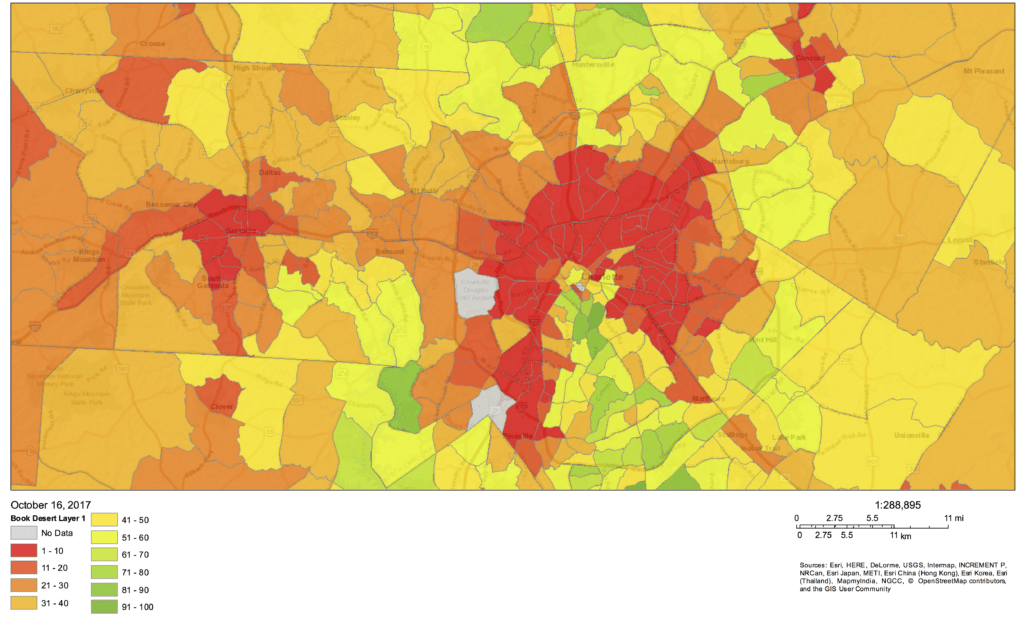

The darkest shade of red shows areas where people have reported less than 10 books in the home. This “book desert” is also sitting on top of a Wi-Fi desert and a food desert. Read Charlotte, an initiative working to improve literacy from birth to 3rd grade, identified a correlation between home libraries and test scores of students living in those homes.
Cates knows schools are dealing with other issues, and access to books may fall by the way side.
“When you’ve got, you know, mental health issues going on in schools and in lower income schools, and not enough support staff, you’re going to put your money into the people that are going to help your kids. Not into bringing books into the schools. That’s kind of where we come in,” said Cates.
Promising Pages opened in 2011, and last year alone, it distributed more than 192,000 books. How? Through three main programs and a lot of volunteer hours.
Receiving books
Books come to Promising Pages in many different ways. Through book drives, personal donations, and more, books arrive in various degrees of use. When the “raw” books come in, they get counted, cleaned, labeled, and sorted into grade levels. One of the most important parts of this processing is putting the Promising Pages sticker on the back of the book.
Cates says they want students to know that the book came to them from another lover of reading, that used books are just as valuable as new books, and that these books are special because they are gifts. She says to students, “they love this book so much they wanted you to have it — they want to share it with you.”

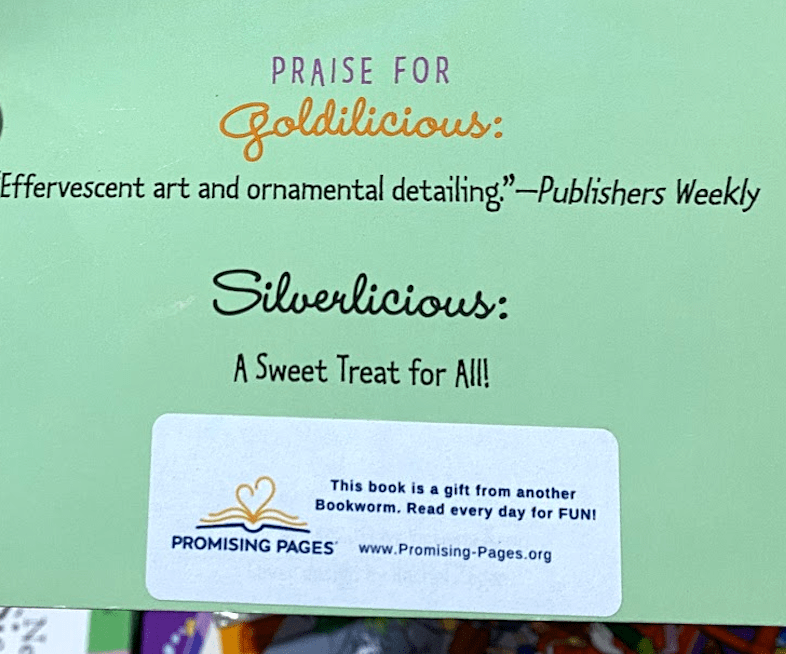
“This book is a gift from another Bookworm.” Caroline Parker/EducationNC 
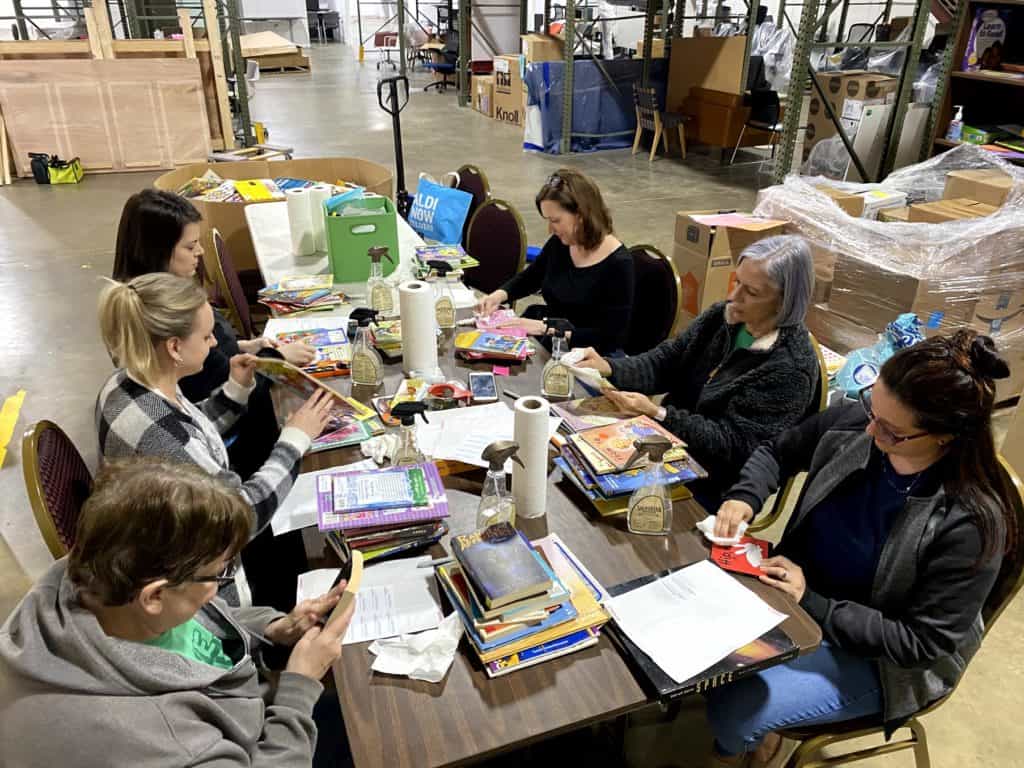
Volunteers at Promising Pages. Caroline Parker/EducationNC
Bookworm Bootcamp
Bookworm Bootcamp is a Promising Pages program where they go into schools and teach students strategies on how to engage with books in different ways than they may have before. This annual eight-week bootcamp is for first graders and typically occurs over an eight-month span.
In the classroom, staff from Promising Pages present different types of genres to the students. They ask the students: What did you like about the book? What did you not enjoy? They hope to empower students with information, creating a mindset where the student becomes a good personal chooser of books.
The program tries to hammer this in by asking students, “Who’s responsible for picking a good book?” and they get to respond “I am!” What first grader doesn’t like to feel like they have a little choice in the world?
Books on Break
Conducted in part with Read Charlotte, Books on Break provides free, pop-up book fairs at the end of the school year. The hope is to build home libraries while combating summer learning loss.
Students receive books, bags, bookmarks, and other little items to help keep them motivated and reading over the summer. The books offered during Books on Break are what Promising Pages likes to call “hot books” — those popular, in-demand books like Diary of a Wimpy Kid or Captain Underpants.
Duke Energy is one of a handful of organizations helping support this program. Shawn Heath, president of Duke Energy Foundation, says, “Investing in proven programs that advance early childhood literacy helps us ensure that North Carolina’s students are primed for success now and in the future.”
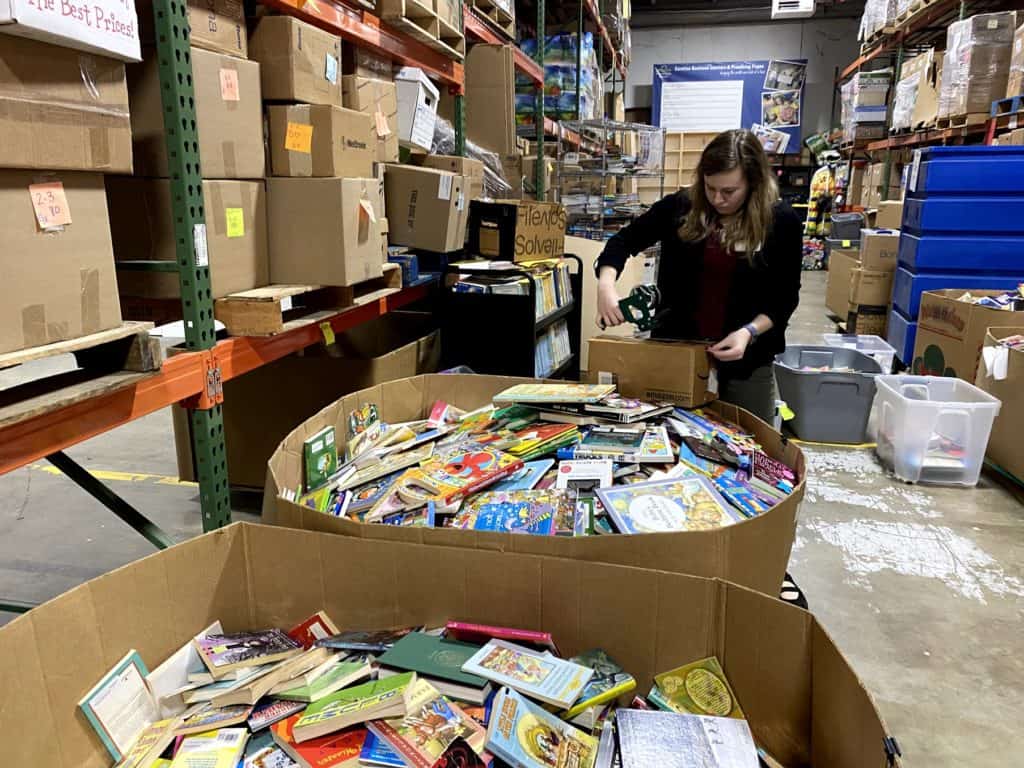

Partnership book distribution
Since 2011, Promising Pages has built an ecosystem of roughly 100 partners that rely on them for book needs. These nonprofit partners make requests and can usually visit the warehouse within a week to gather books for their programs. Teachers in Title I schools have access to the warehouse as well. Every program and teacher needs something slightly different from the other, says Cates.
“We’re just putting books in as many places as kids can get their hands on them,” she adds. Just to name a few, Promising Pages works with the Charlotte Hornets book bus, provides books for medicaid clinic lobbies, works with Charlotte Family Housing to make sure there are book shelves in homes, and more.
Promising Pages is looking to the future and wants to change the color of the book desert map.
“We want to put 25 books in every child’s home in the Charlotte book desert by the year 2025,” says Cates. That would change the red to orange, which they acknowledge isn’t enough — but it’s a start.
“We really believe that if we can hook a child on books, then they’ll become a lifelong learner.”
Editor’s note: Duke Energy supports the work of EducationNC.

